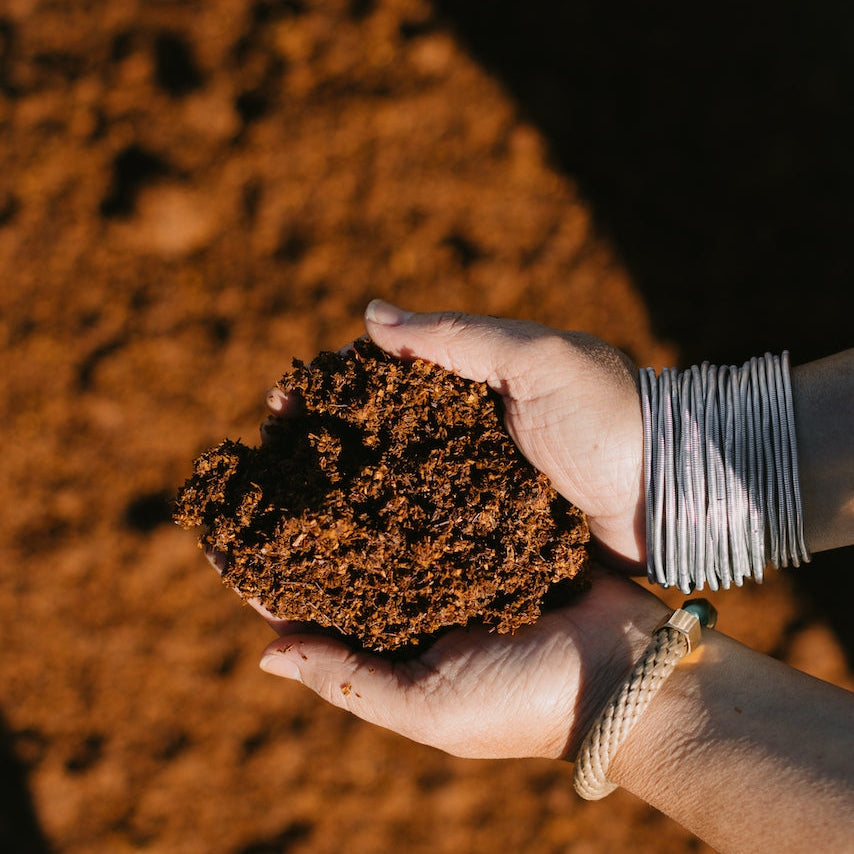Why Organic Farming Matters More Than Ever.
Dom de Villiers
The term organic has been used in vast contexts these days. Often dampening the true meaning of organic and the essence of what organic means and why it is so important. On our farm, we practice organic farming for our tea and citrus and have found the benefits of it and can see positive outcomes in practice. So let's take a look at the meaning of organic farming, the various aspects of it and why it is crucial for our future in agriculture.
What Is Organic Farming?
At its core, organic farming is a method of agriculture that emphasises natural processes, biodiversity, and soil health. Unlike conventional farming, which often relies on synthetic fertilisers, pesticides, and genetically modified organisms (GMOs), organic farming avoids these inputs in favour of natural alternatives. This includes natural fertilisers like compost, animal manure and green manure. These are used to enrich the soil. Another key feature which does no harm is crop rotation - a diverse planting strategy that improves soil fertility and disrupts pest cycles. Insects and other pests are a big downfall in agriculture, and so often pesticides and other harmful chemicals are used to control this. In Organic farming practices a a method of biological pest control is used. This means encouraging natural predators and using plant based repellents.
Why Is Organic Farming Important?
1. Protecting Soil Health
Healthy soil is the foundation of agriculture, yet it’s being depleted at an alarming rate. Conventional farming often strips soil of nutrients, leading to erosion and reduced fertility. Organic farming prioritises the restoration and maintenance of soil health, ensuring long-term productivity.
2. Reducing Environmental Impact
Synthetic fertilisers and pesticides pollute water systems and harm ecosystems. Organic farming minimises these pollutants by relying on natural alternatives. Additionally, organic farms often have better energy efficiency and a smaller carbon footprint.
3. Promoting Biodiversity
Mono-cropping in conventional farming contributes to habitat destruction and loss of biodiversity. Organic farming, with its emphasis on diverse crops and integrated ecosystems, supports pollinators, beneficial insects, and wildlife.
4. Improving Food Quality
Organic produce is free from synthetic pesticides and GMOs, offering consumers a healthier option. Studies also suggest organic food often contains higher levels of certain nutrients and antioxidants.
5. Resilience to Climate Change
Organic farms are better equipped to handle extreme weather. Practices like crop rotation, mulching, and soil enrichment improve water retention and reduce the risk of crop failure during droughts or floods.
6. Aligning with Consumer Values
Consumers are increasingly demanding transparency and sustainability in their food choices. Organic farming aligns with these values, making it a powerful driver for brands looking to connect with conscious buyers.
Organic Farming at Skimmelberg
For us at Skimmelberg, organic farming isn’t just about producing products; it’s about preserving a unique ecosystem. The fynbos biome, which includes Rooibos and Buchu, is one of the richest and most diverse plant kingdoms in the world. By farming organically, we protect this delicate environment while producing high-quality teas that celebrate the natural beauty of South Africa.
Our practices—like using organic compost, avoiding harmful chemicals, and fostering biodiversity—ensure that our Rooibos and Buchu teas are as pure as the landscapes they come from. Every cup you brew is not just a taste of nature but also a step toward a more sustainable future.
Why Organic Is the Future
With the issues of climate change already hitting our society, sustainable farming has become a pivotal necessity in the globe. Organic farming isn’t just a niche; it’s a necessity. By choosing organic, whether as a farmer or a consumer, you contribute to a healthier planet, a more resilient food system, and a legacy of sustainability. As the mono cropping culture shows signs of destructive practices, organic farming and permaculture are on the opposing end - shedding light on how farming and agriculture does not have to be destructive, and instead can be abundant for all.
